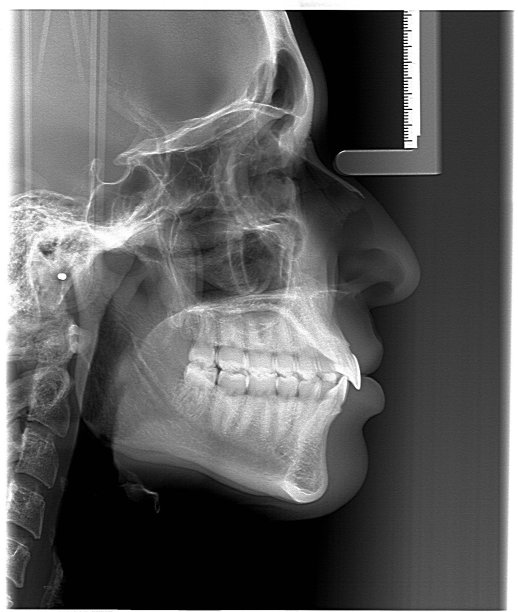Summary: Dental implants represent a pivotal advancement in modern dentistry, merging functionality with aesthetics for those seeking solutions for missing teeth. However, successful implantation necessitates adherence to certain essential guidelines to ensure optimal oral health and patient satisfaction. This article emphasizes four critical aspects: patient evaluation, procedural safety, post-operative care, and the importance of professional expertise. By adhering to these guidelines, both practitioners and patients can achieve optimal outcomes, enhancing not only the functionality of dental implants but also overall patient experience.
1. Importance of Thorough Patient Evaluation

Prior to performing dental implants, comprehensive patient evaluation is imperative. This process begins with assessing the patient’s medical history, dental condition, and specific needs. Understanding chronic conditions or allergies is crucial to mitigating potential risks associated with the surgery. Moreover, having an open conversation with patients regarding their expectations and concerns helps in tailoring the treatment plan accordingly.
Furthermore, clinical examinations and advanced imaging techniques, such as X-rays or 3D scans, ensure precise treatment planning. These diagnostic tools facilitate the evaluation of bone quality and density, which are critical for the successful installation of implants. Identifying any anatomical challenges beforehand aids in preventing complications during surgery.
Additionally, the importance of psychological evaluation cannot be overlooked. Assessing a patient’s mental readiness and expectations contributes to a better understanding of how they will respond to the treatment process. A well-informed and mentally prepared patient is more likely to achieve a satisfactory outcome.
2. Ensuring Procedural Safety During Implantation
Safety protocols during the dental implantation process cannot be compromised. This means adhering strictly to sterilization techniques, using high-quality materials, and ensuring that the surgical environment meets health standards. An adequately prepared surgical team equipped with the right tools bolster the safety and efficiency of the procedure.
Moreover, the selection of anesthesia options is vital for patient comfort and safety during the procedure. Whether opting for local anesthesia, sedation, or general anesthesia, the patient’s health history should guide the choice made by the dental professional. Regular monitoring of the patient’s vital signs throughout the procedure also is essential to swiftly address any complications.
Lastly, it is critical that the procedure is performed by a qualified dental professional with experience in implantology. This includes not just technical skills but also the ability to make real-time decisions that could affect the surgerys outcome. Ensuring that the surgical team is experienced can significantly increase the likelihood of a successful and safe procedure.
3. Focus on Comprehensive Post-operative Care
Post-operative care plays a significant role in the success of dental implants. Following the surgery, providing patients with clear instructions on aftercare is essential. This includes guidance on diet, oral hygiene practices, and any medications prescribed for pain relief or infection prevention. Clear and accessible information ensures that the patient can maintain their oral health post-procedure.
Monitoring and follow-up appointments are equally critical. These visits allow dental professionals to assess healing progress, address any complications, and adjust aftercare instructions if necessary. Consistent communication between the patient and the dental office fosters a supportive relationship and enhances the overall treatment experience.
Furthermore, educating patients on recognizing warning signs of complications, such as excessive swelling or pain, empowers them to seek help promptly. A proactive approach to post-operative care not only promotes healing but also reinforces patient confidence in the treatment process.
4. Importance of Professional Expertise and Experience
Choosing a dental professional with specialization in implant dentistry is paramount for successful outcomes. The skill set and experience of the clinician directly influence the quality of care received. Experienced professionals can draw on their knowledge to troubleshoot issues that may arise during the implantation process, ensuring that complications are managed effectively.
Continuous education and training in newer implant techniques and technologies are also essential in this evolving field. Practitioners who stay updated with the latest advancements provide the best care and options to their patients. Employing advanced techniques significantly enhances the chances of successful integration and long-term stability of implants.
Moreover, fostering a collaborative environment within the dental team enhances the overall treatment experience. Specialists, hygienists, and support staff collectively contribute to the patient’s journey, ensuring that every aspect of care is executed with precision and compassion.
Summary:
Successful dental implantation hinges on adherence to vital guidelines encompassing thorough patient evaluations, ensuring procedural safety, emphasizing post-operative care, and recognizing the importance of professional expertise. Such comprehensive approaches not only contribute to optimal oral health, but they also significantly enhance patient satisfaction.
This article is compiled by Vickong Dental and the content is for reference only.
Vickong Dental
Vickong Dental is a large medical group established in Hong Kong in 2008 by professors from well-known medical universities in Guangdong and Hong Kong, as well as medical doctors from key national '985' universities (including Master's supervisors and senior professors). The chain of branches brings together expert dentists with PhDs and Master's degrees from Hong Kong and Mainland China, committed to providing high-quality dental treatment.
"Vickong Dental Practices the University Motto of 'Healing and Serving Society,' with a Stable Operation for Sixteen Years. It Has Been honored with Hong Kong Enterprise Leaders's Choice,' and is a Global Trusted Implant Center for the Nobel Implant System. Recommended by Hong Kong Metro Broadcast and Guangdong Television, it Serves Customers from Over Thirty Countries and Regions, Gaining the Trust and Favor of Citizens from the Guangdong-Hong Kong-Macau Greater Bay Area and Surrounding Cities.

Thousands of customers' unanimous praise
The most recognized and highly recommended dental service by customers in the Guangdong-Hong Kong-Macau Greater Bay Area
We Ensure You Receive Detailed Care and Attention Here
Hong Kong standards, Shenzhen prices, Your Trusted English-speaking dentists

Vickong Dental Medical-Grade Instrument Disinfection Process
Vickong Dental Medical-Grade Instrument Disinfection Process

Vickong Dental Chain: A Warm and Comfortable Environment for Treatment






Appointment Hours

Q&A
Why choose Vickong Dental?
Vickong Dental practices the university motto 「Medicine to Benefit Society」, with each branch bringing together highly qualified dentists with doctoral and master’s degrees from Hong Kong and the Mainland, and has maintained seventeen years of steady operation。Recipient of 「2024 Hong Kong Enterprise Leaders Brand」, 「2025 Hong Kong Enterprise Leaders Brand」, a Nobel Biocare Global Trusted Implant Center, and a brand recommended by Metro Radio Hong Kong and Guangdong TV。
To date, we have served customers from more than thirty countries and regions,earning exceptionally high word-of-mouth recognition and trusted recommendations from residents across the Guangdong-Hong Kong-Macao Greater Bay Area and surrounding cities
We have eight major branches in Zhuhai、Shenzhen,and a consultation and service assurance center in Hong Kong,so you can book a free consultation at any time for any questions,which is very reassuring.
If I do not accept the quotation after the CT scan, will I be charged??
No! As long as the actual treatment has not started, you will not be charged any fees.
Will there be any additional charges during the treatment process?
No, there won’t be any additional charges. Before treatment begins, we will clearly explain the treatment plan and its corresponding fees. Only after the patient agrees and signs the consent form will we proceed with the dental service.
Can I pay in Hong Kong dollars?
Yes. Vickong Dental accepts payment in Hong Kong dollars. The amount will be converted based on the exchange rate of the day, and the applicable rate will be clearly communicated to you in advance.
Can I reschedule my appointment at any time?
Yes. Please contact us via **WeChat** or **WhatsApp** as early as possible, providing your original appointment time and details, along with your preferred new date and time slot for rescheduling.













